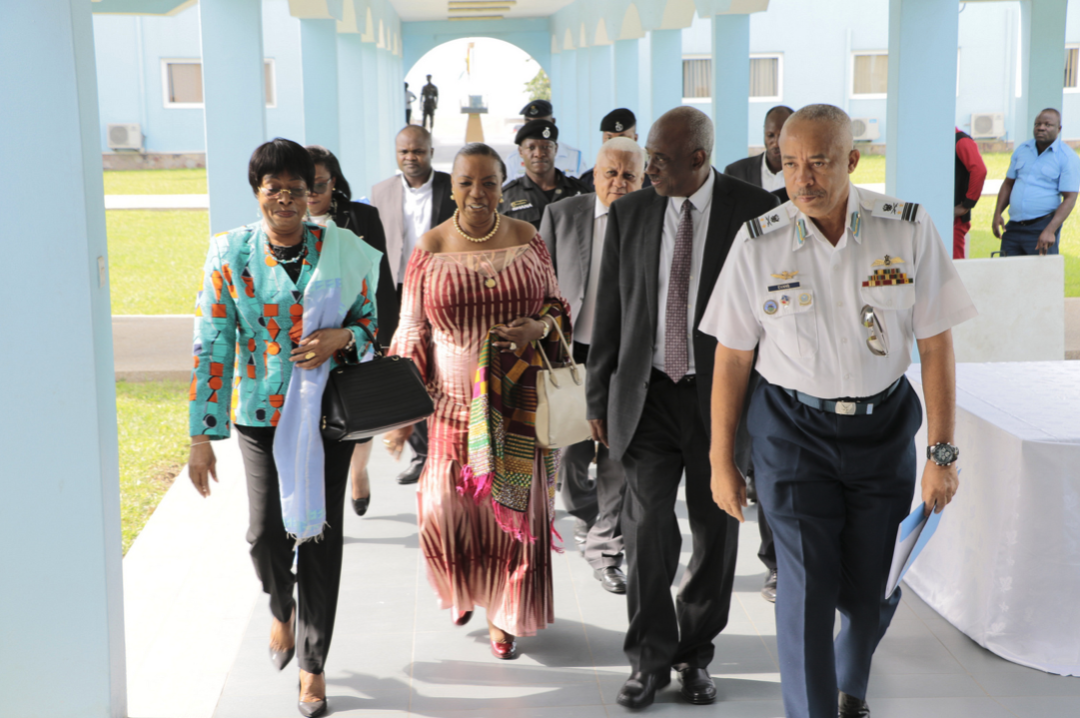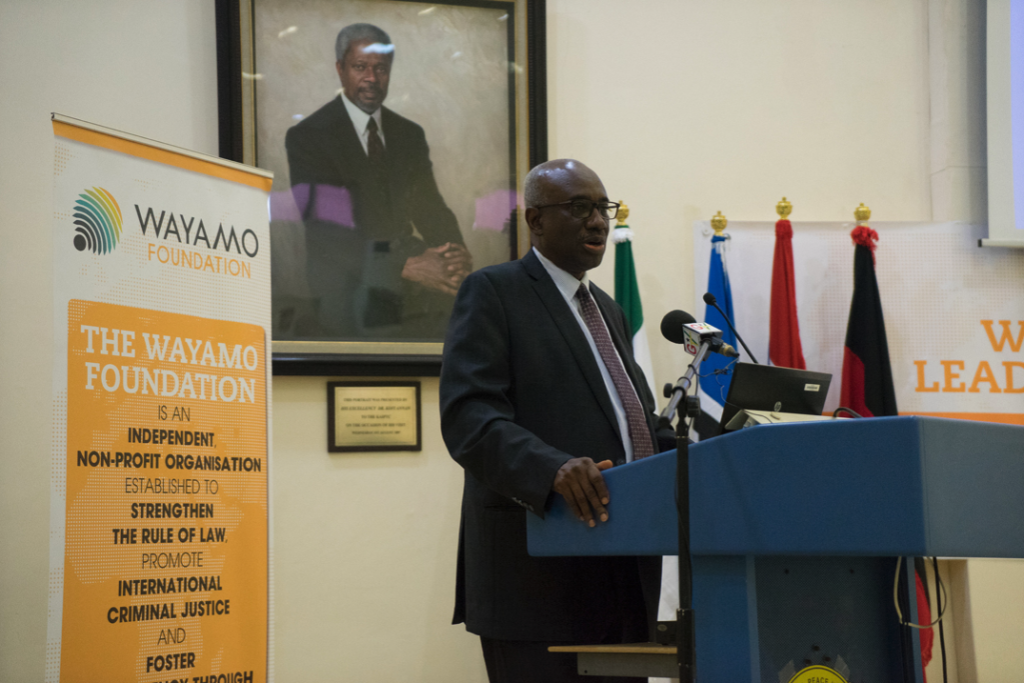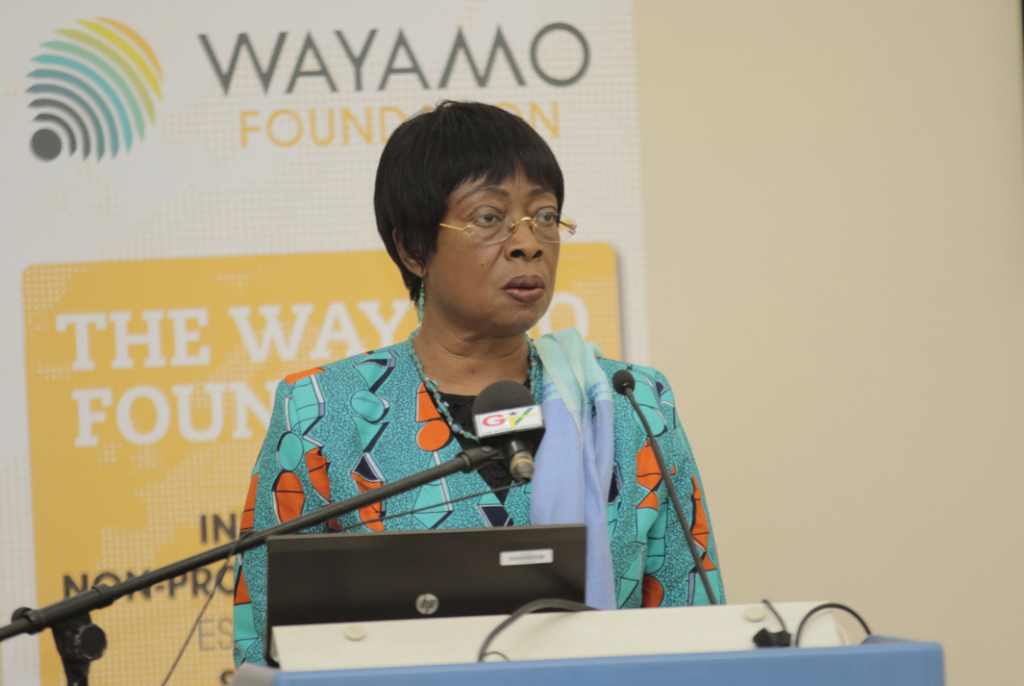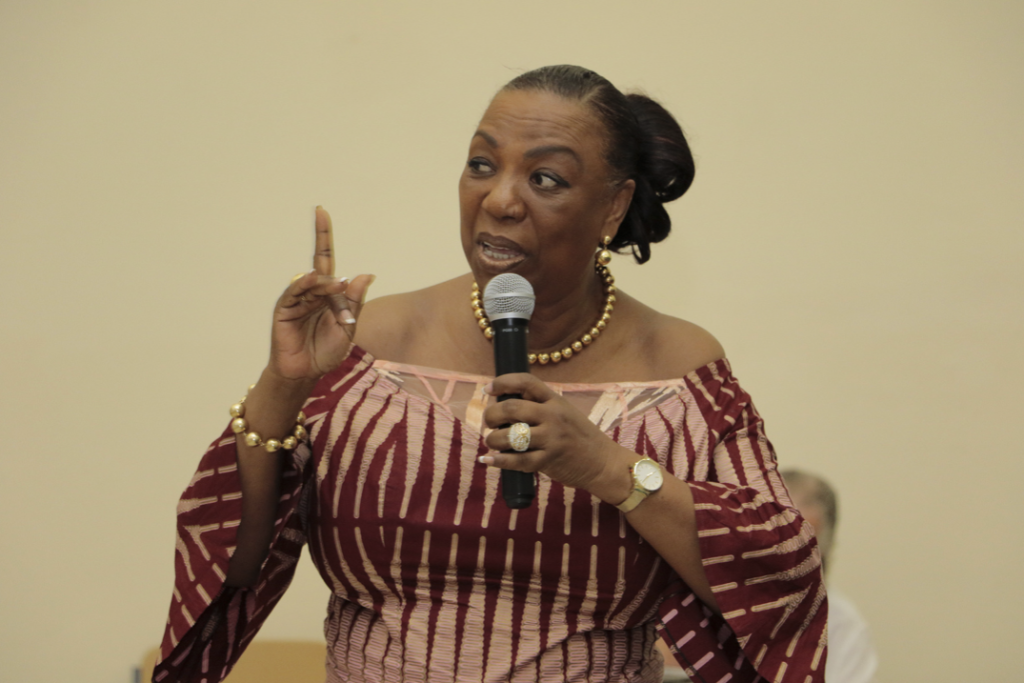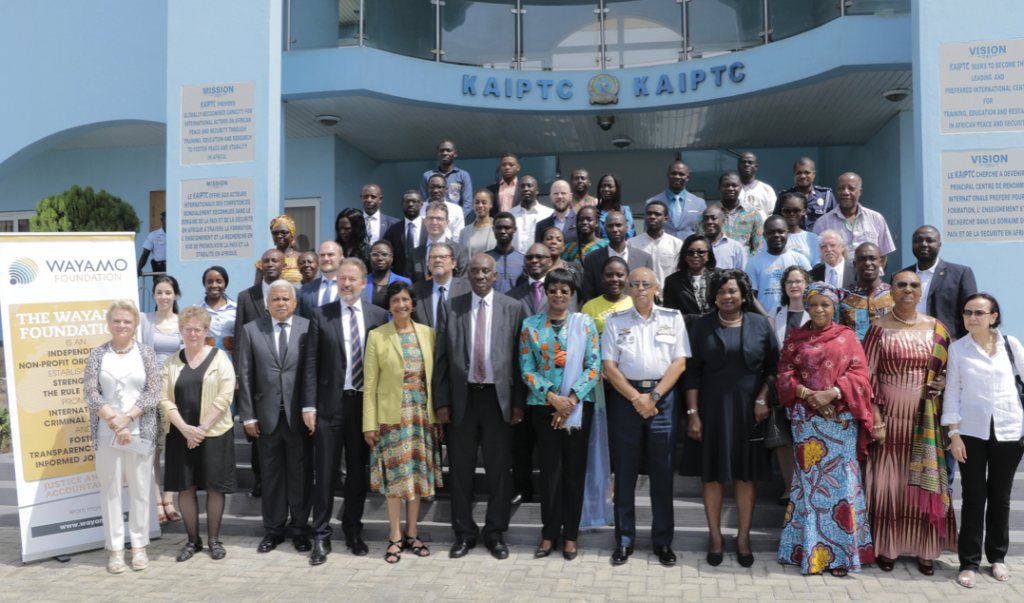International Justice Symposium in collaboration with the Konrad Adenauer Stiftung’s Rule of Law Programme for Sub-Saharan Africa and with the support of the Kofi Annan International Peacekeeping Training Centre and the School of Law of the Ghana Institute of Management and Public Administration
21 – 22 March 2019
An intense, two-day look at West African International Justice – Leadership, Challenges, and Opportunities
Click here for the programme and here for the press release.
West Africa has been the scene of impressive activity in the fight against impunity for international crimes. Engagement with justice and accountability processes in West Africa thus merits scrutiny in its own right.
It was this that prompted the Wayamo Foundation, the Africa Group for Justice and Accountability (AGJA)and the Konrad Adenauer Stiftung’s Rule of Law Programme for Sub-Saharan Africa to hold a symposium in Accra, Ghana, on the wide-ranging topic of “West African International Justice – Leadership, Challenges, and Opportunities”, with the aim of examining and exploring the contributions and ongoing challenges facing West Africa in the fight to achieve meaningful justice and accountability for atrocities in the region. A handpicked group of international and regional experts came together to assess West Africa’s contributions to global justice and the continuing challenges to achieving this end.
Thursday 21st March 2019: International Symposium
Click here for the pictures.
Held at no lesser venue than Accra’s Kofi Annan International Peacekeeping Training Centre (KAIPTC), the symposium was officially opened by Air Vice Marshal Griffiths S. Evans in his capacity as the Centre’s Commandant, followed by Wayamo Foundation Director,Bettina Ambach, Chief Justice of The Gambia and AGJA Chairman, Hassan Bubacar Jallow, German Ambassador, Christoph Retzlaff, and Peter Wendoh of the Konrad Adenauer Stiftung. These words of welcome were brought to a close by an appeal from Ghana’s Chief Justice, Sophia Akuffo, who felt that, rather than concentrating solely on the atrocity crimes committed by “political bigwigs” that are of such concern to the wider international community, attention should instead focus on the need for community-wide institutional arrangements to address the types of cross-border crimes that are currently plaguing the region.
This brief yet thought-provoking opening ceremony was followed by a conversation loosely structured around the topic of “Leadership, Challenges and Opportunities”,in which Wayamo moderator, Joseph Roberts-Mensah, guided his two guests, AGJA Members Zainab Bangura, Former UN Special Representative of the UN Secretary General on Sexual Violence in Conflict, and Navi Pillay, former UN High Commissioner for Human Rights, through a series of searching questions.
The remainder of the day was devoted to three panels which discussed topics ranging from “The International Criminal Court in West Africa: Complementarity in Action?” to “The Future of International Justice and Emerging Contexts in the Region” and “New Challenges and New Opportunities: Investigating Human Rights Violations and Atrocity Crimes in the Region”. Ably led by their Wayamo and AGJA moderators, Angela Mudukuti, Mohamed Othman Chande and Fatiha Serour, a team of panellists, all experts in their chosen fields, made brief presentations and then fielded questions from the floor. Sometimes coinciding, sometimes diverging, the opinions voiced reflected the panellists’ respective experiences: as human rights activists, e.g., Elise Keppler and Reed Brody, both from Human Rights Watch, Eric-Aimé Semien from the Ivory Coast Human Rights Observatory, and Adama K. Dempster from the Liberian Civil Society Human Rights Advocacy Platform; as legal practitioners, e.g., Nigerian Complex Casework Group prosecutor, Matthew Odu Una, Philipp Ambach, Chief of the Victims Participation and Reparations Section at the International Criminal Court (ICC), and Kenyan High Court Advocate and AGJA Member, Betty Kaari Murungi; and as academics, e.g., Kwesi Aning, Director of KAIPTC’s Faculty of Academic Affairs & Research.
The symposium was attended by an audience of well over 80, which included AGJA members and Ghanaian Special Prosecutor, Cynthia Lamptey.
Friday 22nd March 2019: Lecture and discussion
Click here for the pictures.
The following day saw a very different kind of event, in the shape of a lecture and discussion on “Modern Slavery and Human Trafficking” at the Faculty of Law, Ghana Institute of Management and Public Administration. The proceedings were formally opened by Justice (Sir) Dennis Adjei, Dean of the Law School, accompanied by Victor Brobby and Edmund Foley, Heads of the Private and Public Law Departments respectively.
Coming from a sociological and humanitarian background in the case of Rahel Gershuni, UNODC Consultant and former Israeli National Anti-Trafficking Co-ordinator, and from a legal background in the case of Philipp Ambach, Chief of the ICC’s Victims Participation and Reparations Section, the two tackled this troubling and all too common phenomenon, whose tragic effects are now being felt in almost every corner of the world. Issues such as underlying values, practical tools, victim consent, and the feasibility of prosecuting trafficking as an international as opposed to a national crime were just some of the aspects covered before the subject was opened to the floor. As expected, the topic aroused passions, and the questions and comments were both vigorous and heartfelt. The event was seen as timely and hailed as a success by participants and speakers alike.
A round of courtesy visits
Click here for the pictures.
Aside from its schedule of public events, the AGJA had very fruitful meetings with the President of Ghana and the Cabinet Secretary, during which the Africa Group’s mission and activities were discussed. The President expressed his full support for AGJA and its quest for justice and accountability across the region, and expressed his desire to remain engaged with Wayamo and AGJA in the future.
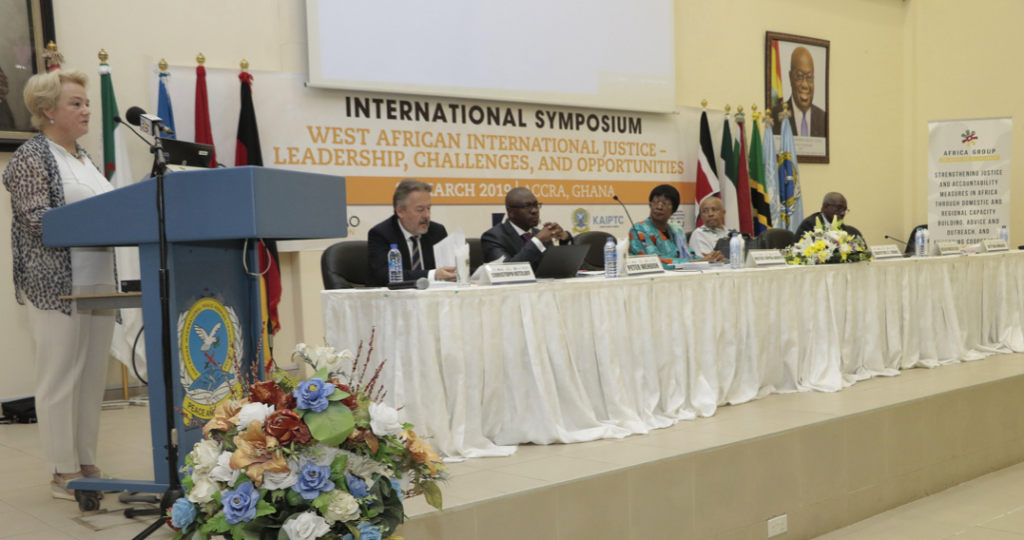
Opening remarks with Bettina Ambach, Director, Wayamo Foundation, Hassan Bubacar Jallow, Chair of the AGJA and Chief Justice of The Gambia, Justice Sophia Akuffo, Chief Justice of Ghana, Supreme Court of the Republic of Ghana, Christoph Retzlaff, Ambassador of the Federal Republic of Germany, Peter Wendoh, Project Advisor, Rule of Law Program for Sub Saharan Africa, Konrad Adenauer Stiftung, Nairobi and Griffiths S. Evans, Air Vice Marshal, Commandant, KAIPTC

